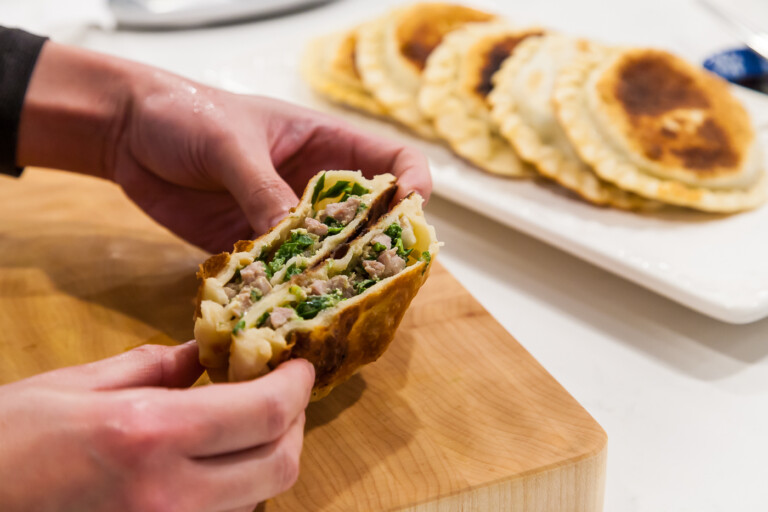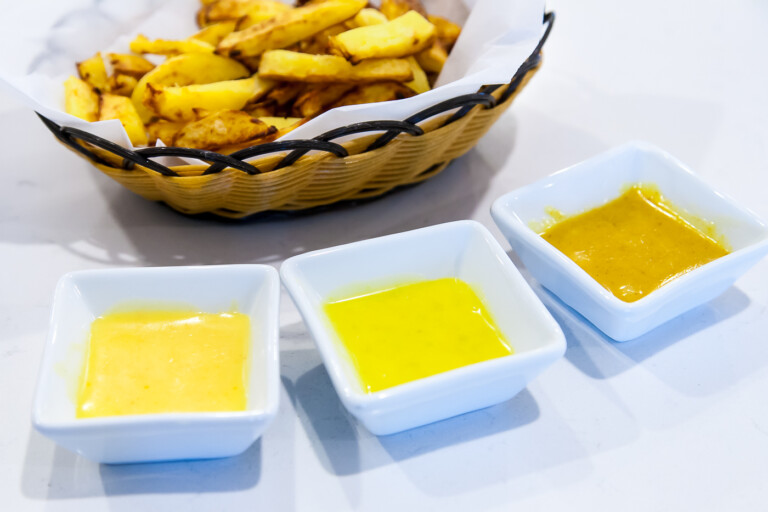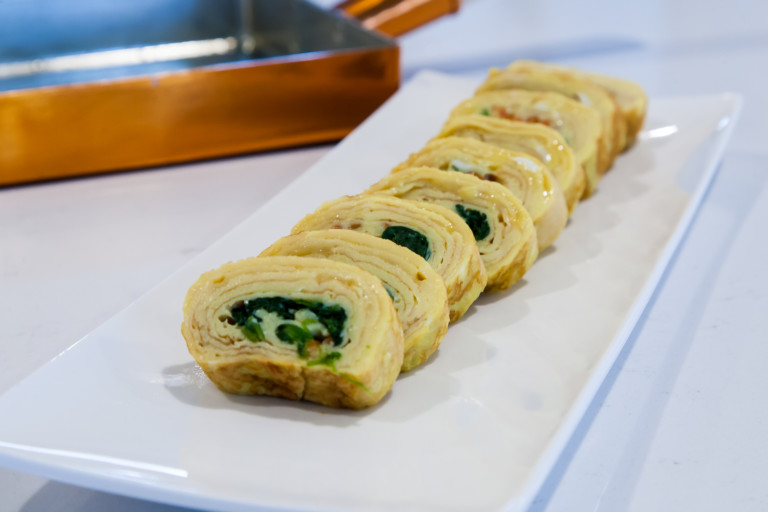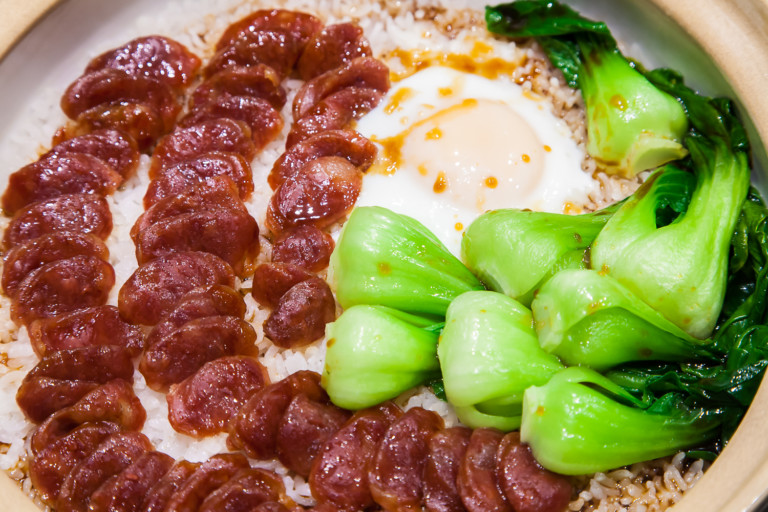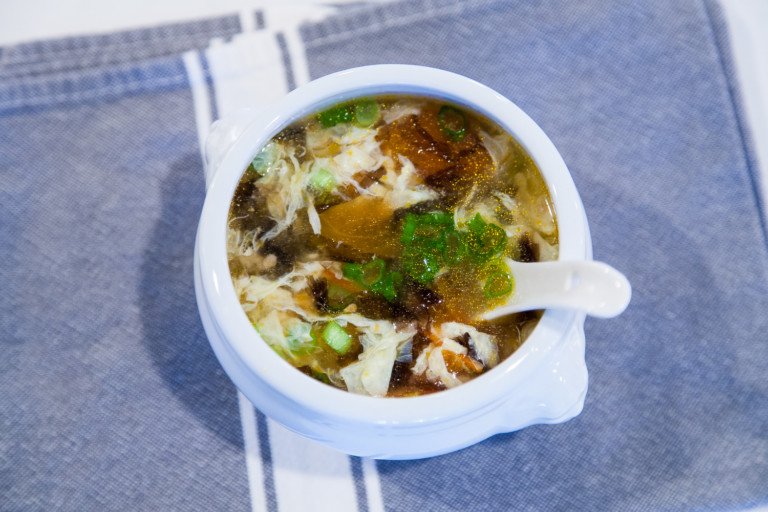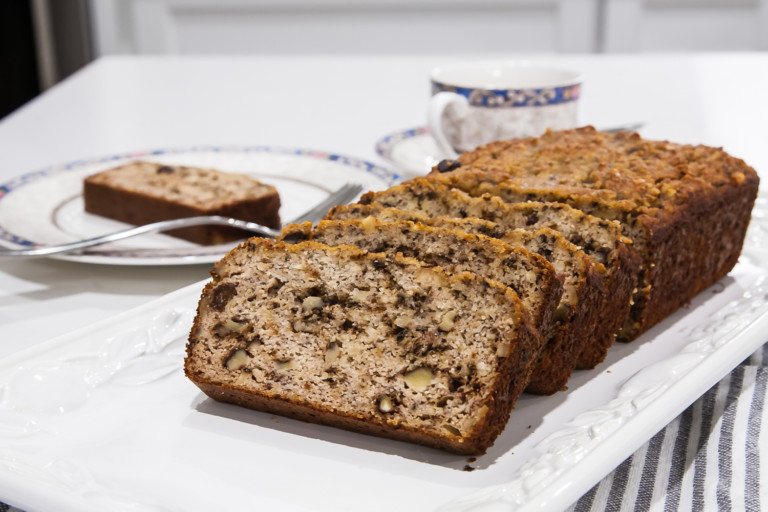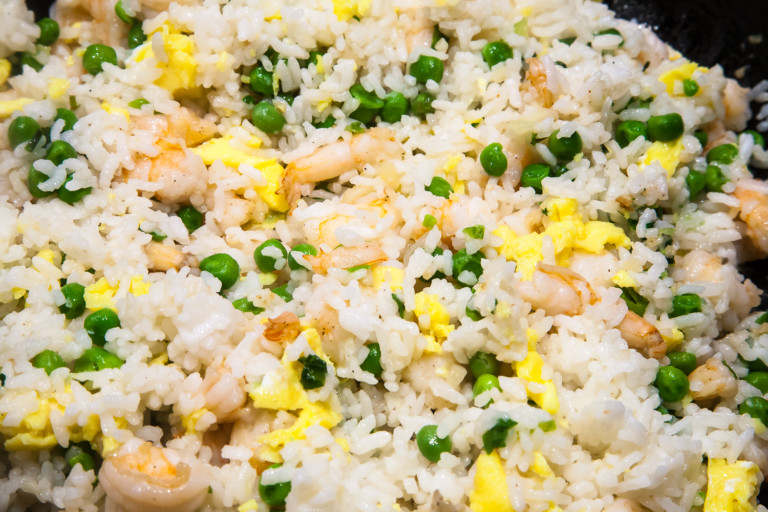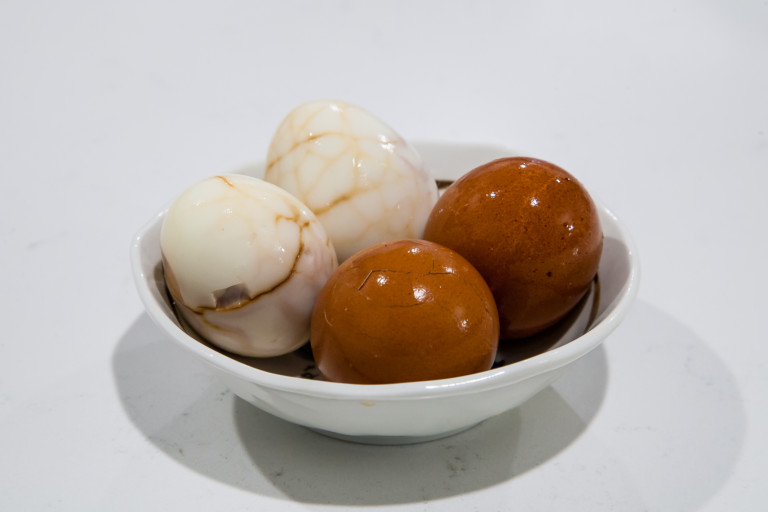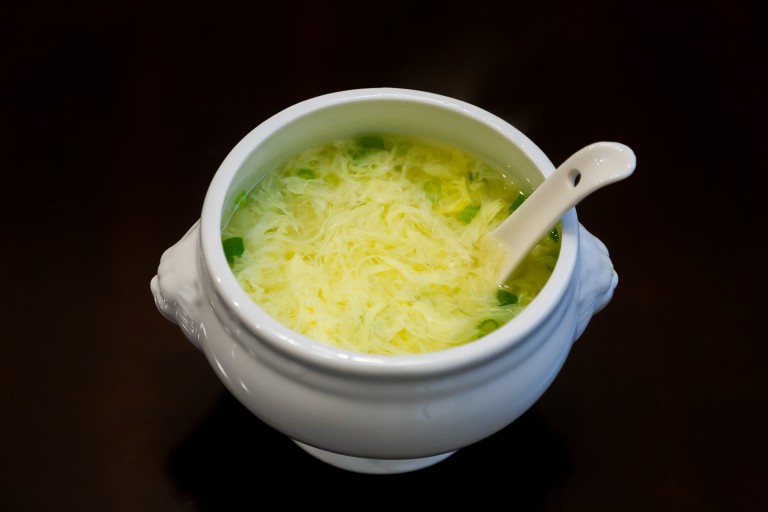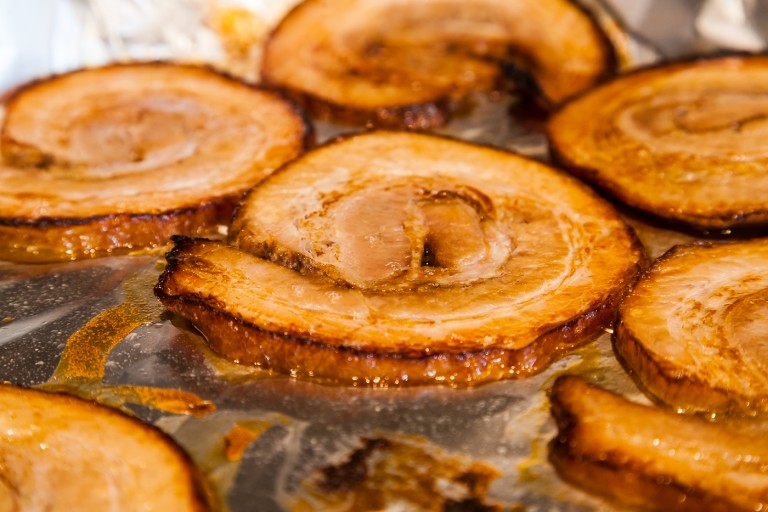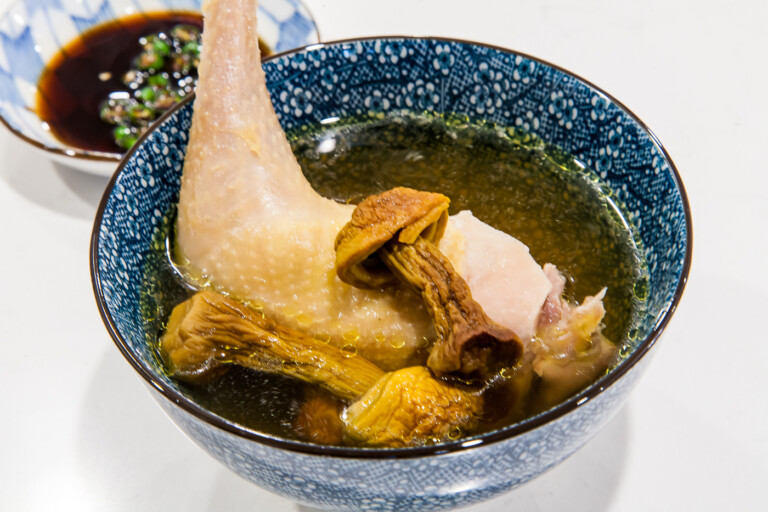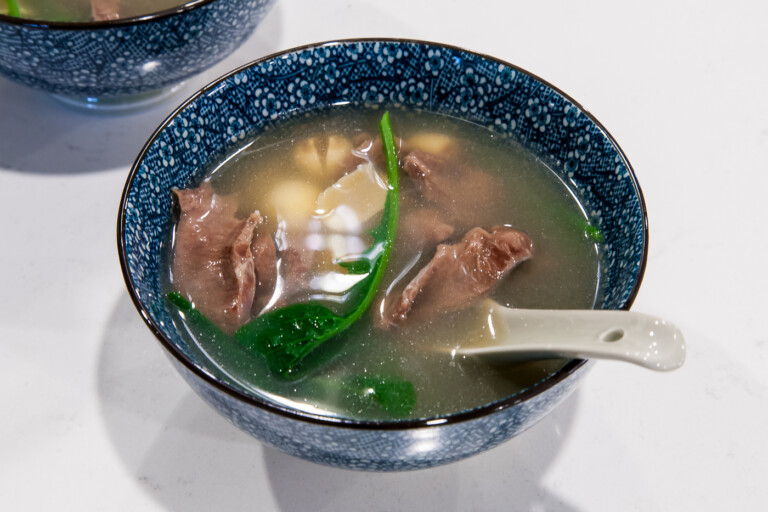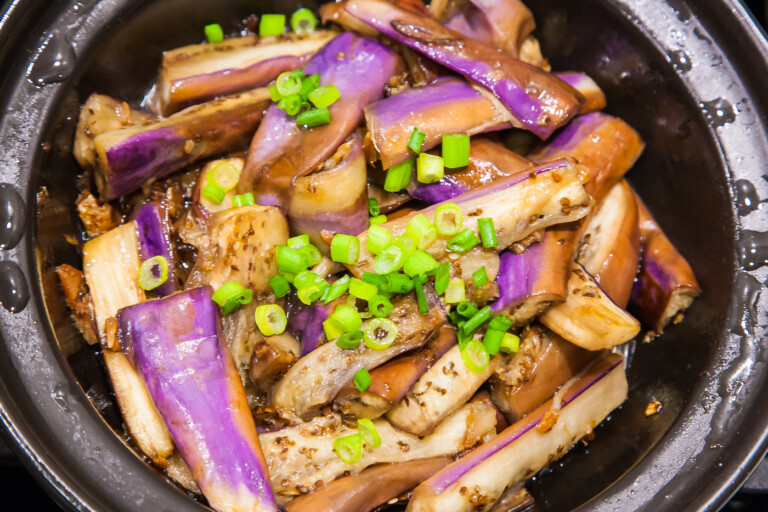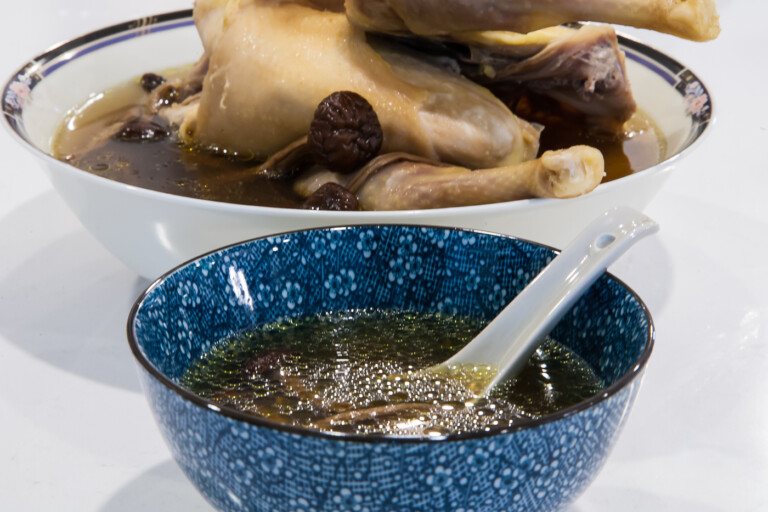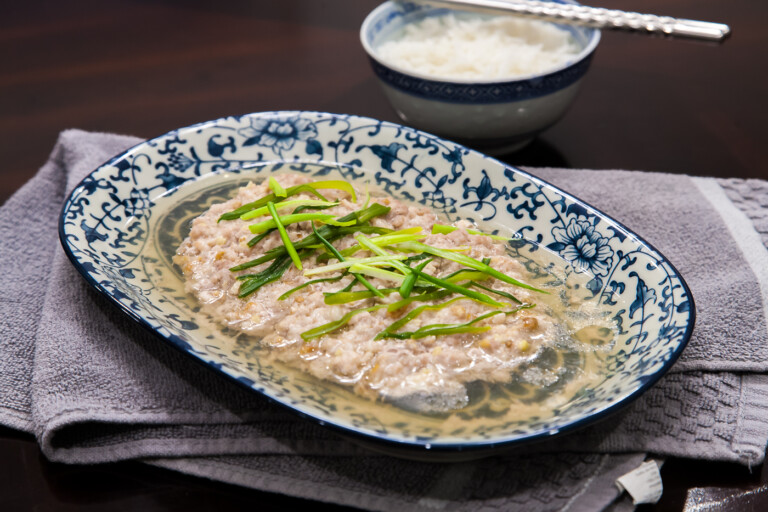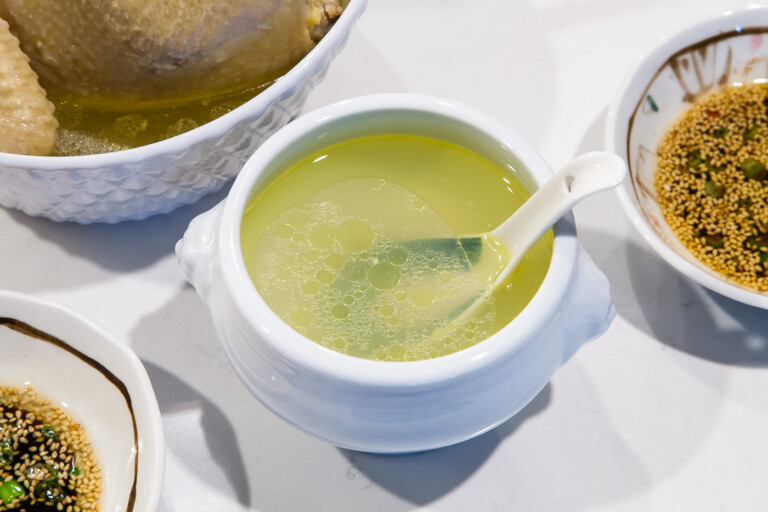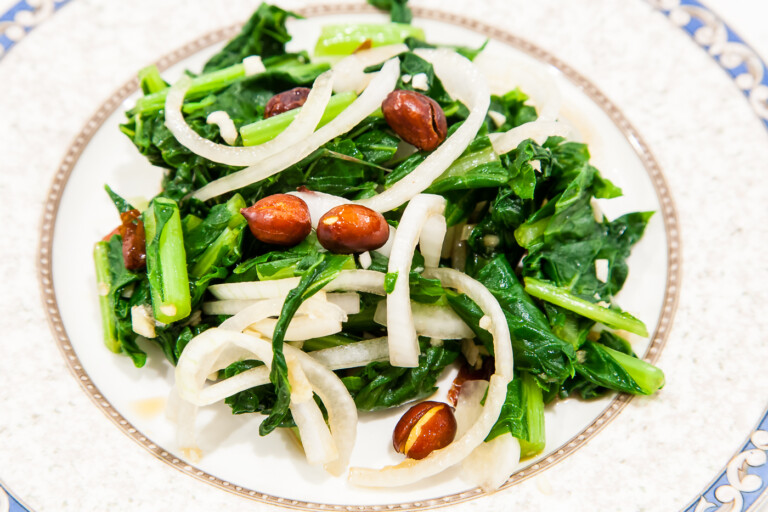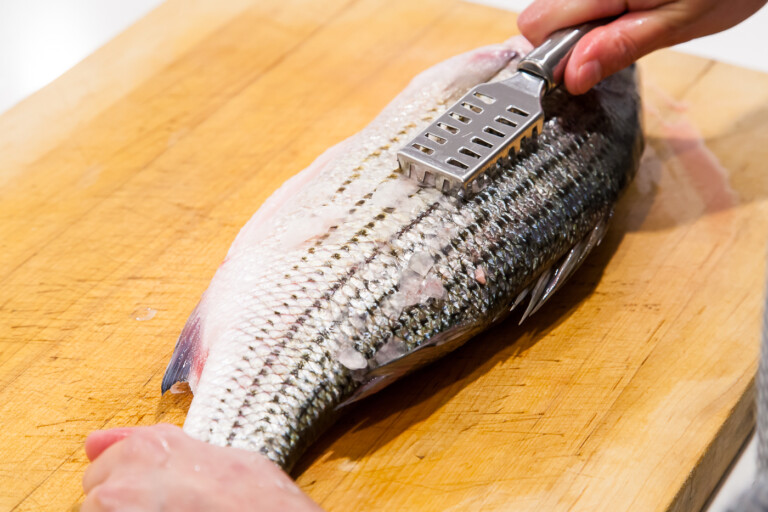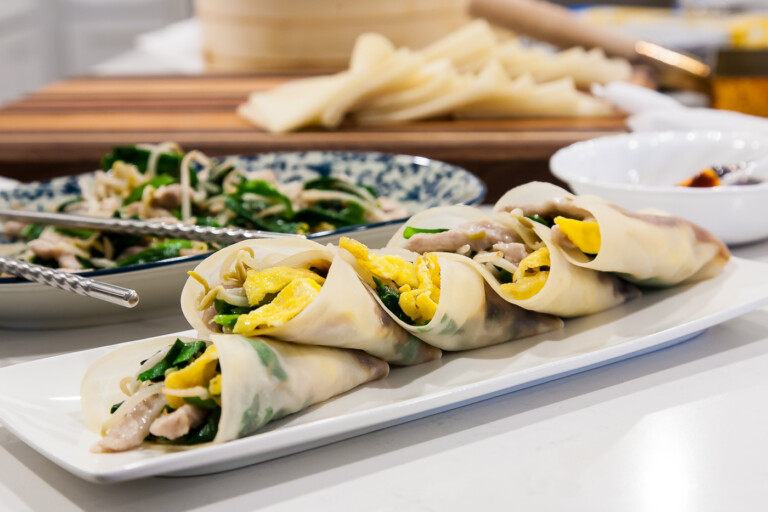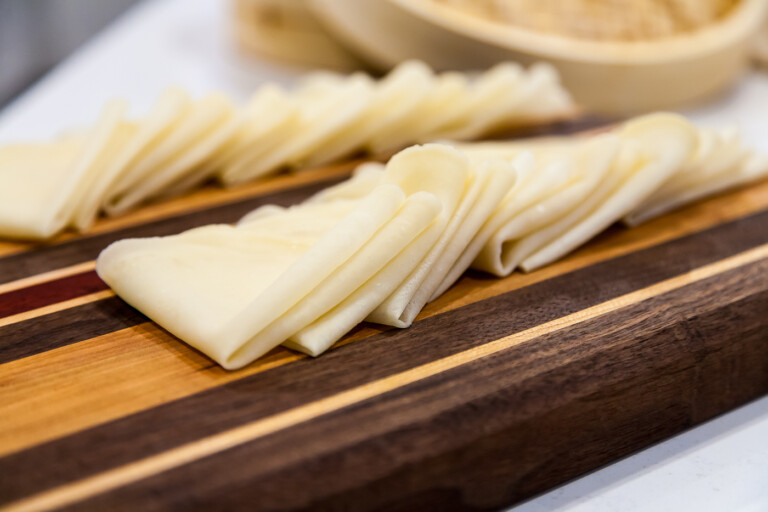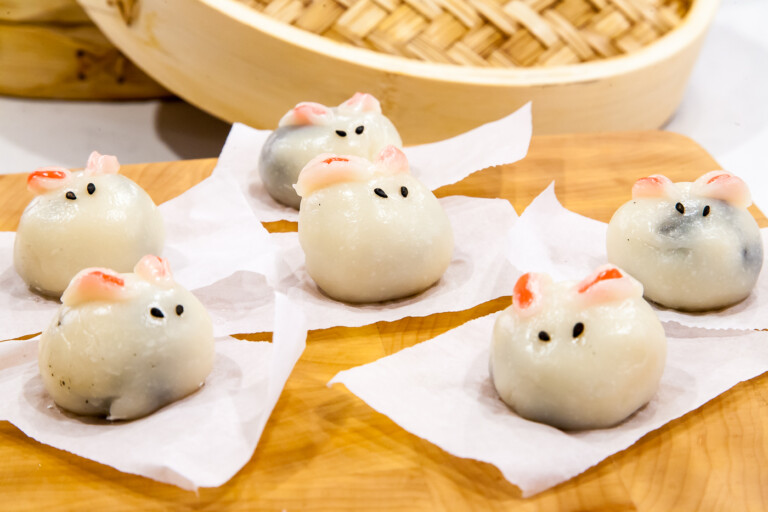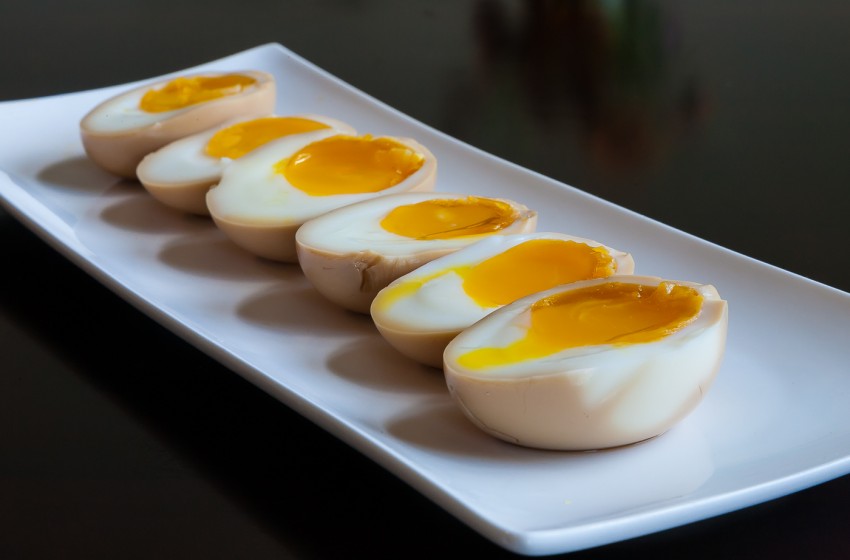
Ramen Soft-Boiled Eggs (溏心卤蛋)
July 4, 2020 Print
Like my previous recipe for Chashu pork, this recipe for ramen soft-boiled eggs is the one that I use quite often. The ramen soft-boiled egg has a custard like consistency. When biting into it, it has a mix of savory and sweet flavors. My husband likes to say it’s always good to have some Chashu pork and ramen eggs ready in the refrigerator. They are definitely my top two choices to go with ramen, whether I’m making from scratch (I will share some of my ramen recipes later) or from an instant noodle package.
But don’t limit yourself to only ramen. Ramen soft-boiled eggs also go well with rice. For instance, you can add one to a rice bowl when serving a traditional Chinese meal. You could also add it in place of the sunny-side egg that is often served with Korean Bibimbap! Serve it for breakfast in place of hard-boiled, scrambled, or fried eggs. Add one in a salad bowl. The possibilities are endless.
This recipe is quite common and you will find many variations online for the marinade. The boiling time is the key to making the perfect soft-boiled egg. Too short, and the yolk is too runny. Too long, and the yolk becomes too hard. Feel free to experiment a bit to find the best consistency to your liking. I like to add 1 tablespoon of salt to the water while simmering the eggs to make peeling a bit easier. Also if you don’t have mirin1 handy, don’t worry, you can substitute 3 tablespoons of mirin with 1 tablespoon of saki, 2 tablespoons of sugar, and 2 tablespoons of water. Just make sure to dissolve the sugar first in saki and water before adding the mixture to the marinade. The result will taste equally good.
If the custard-like soft-boiled egg is not your cup of tea,4 don’t feel bad. I have friends who cannot stomach any runny or soft-boiled eggs. I will share my tea egg recipe in a future post that is made with fully boiled eggs.
Active Time: 20 minutes
Total Time: 30 minutes
Tools: one quart Ziploc or resealable bag; plenty of ice
Ingredients:
- 6 large eggs
- 1 tablespoon salt2
- 3 tablespoons light soy sauce
- 3 tablespoons mirin1
- 6 tablespoons water
Preparation:
- Carefully take the 6 large eggs from the refrigerator and gently put them in a large plate. Leave them at room temperature while boiling the water.
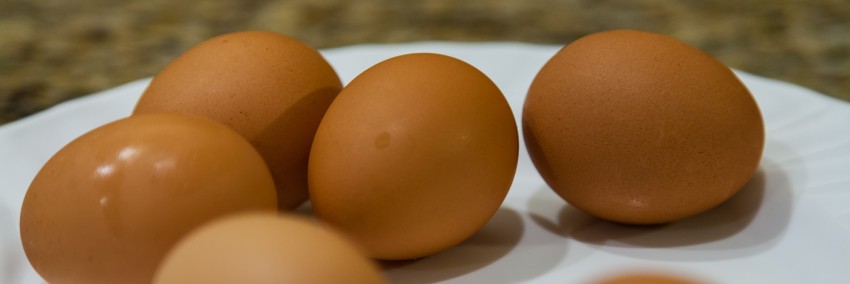
- Fill a medium saucepan with more than enough water to cover the eggs. The water level should be 1 inch (or 2 cm) above the eggs when the eggs are submerged. Add the 1 tablespoon of salt to the water. Then bring the water to a boil.
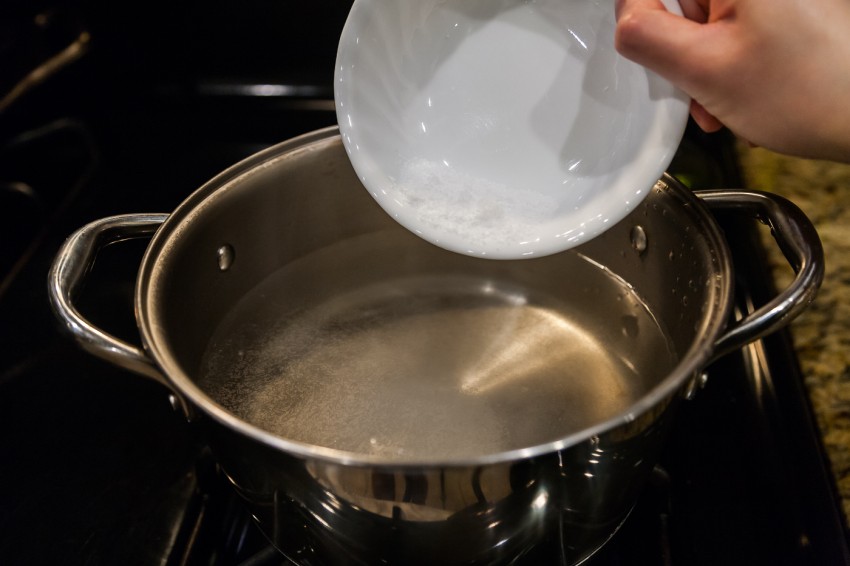
- In a Ziploc bag, carefully add the 3 tablespoons of light soy sauce, 3 tablespoons of mirin (or mirin substitute),1 and 6 tablespoons of water. Seal and set aside.
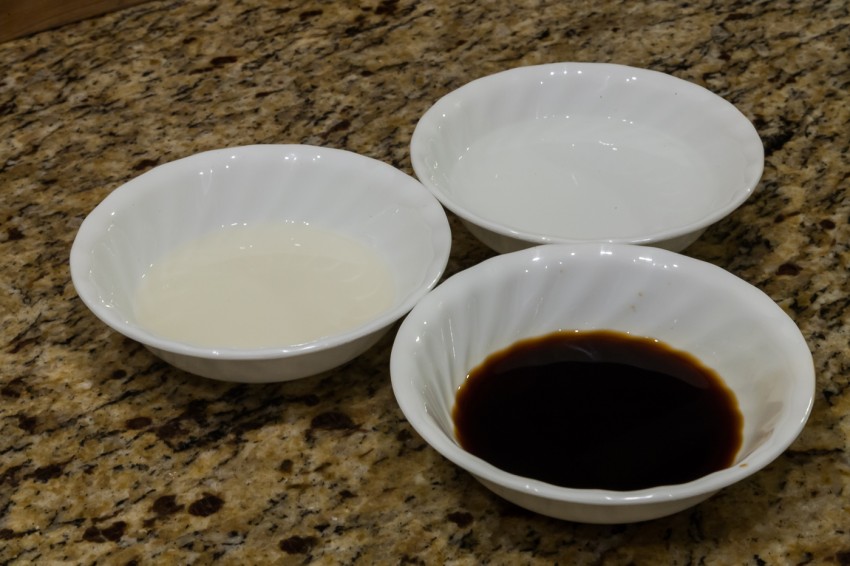
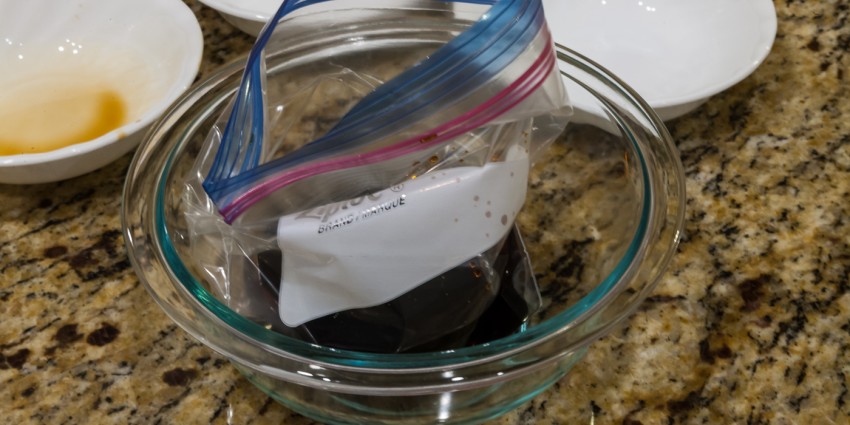
- When the water is boiling, use a large ladle to carefully transfer the room-temperature eggs into the boiling water. Make sure not to crack the eggs with the bottom of the pan when adding them to the water.
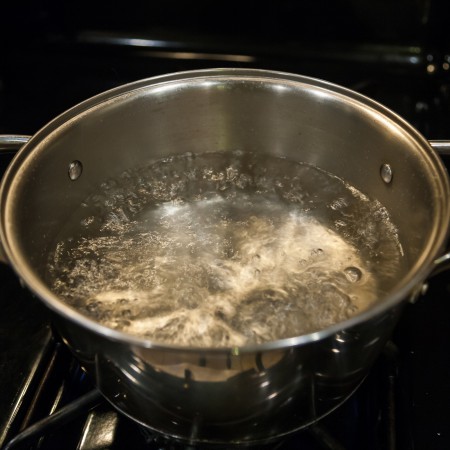
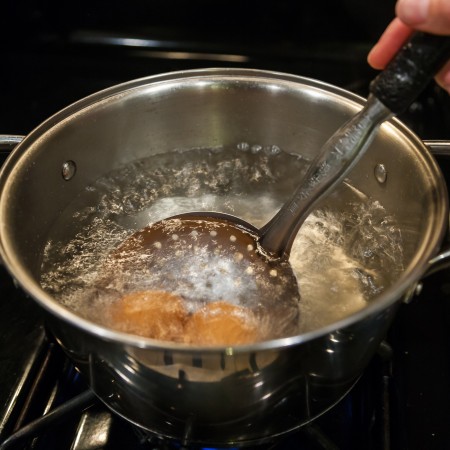
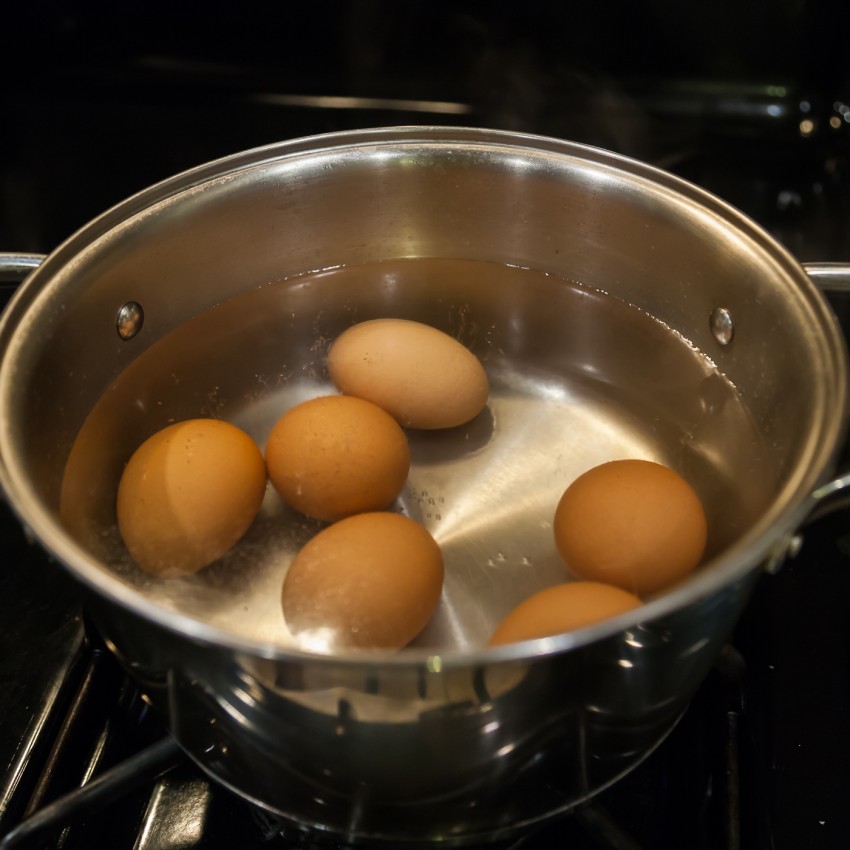
- Immediately lower the heat to maintain a simmer and start a 7 and half minute timer.3 4 Watch the eggs attentively as you might need to adjust the heat accordingly. With a simmer, there should still be tiny bubbles constantly popping up, but the eggs should not be moving around and making bouncing sound.
- While the eggs are being simmered, prepare a large bowl with plenty of ice and water.
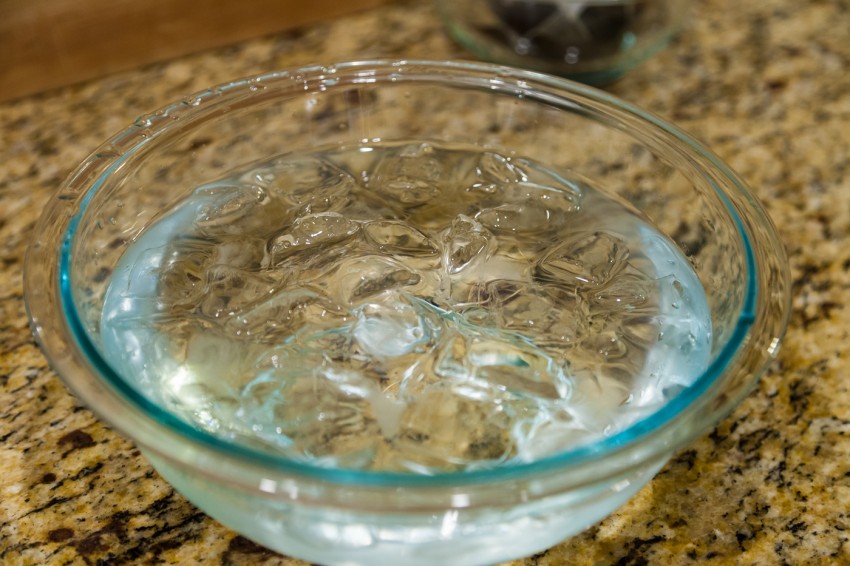
- When the 7 and half minute timer is up,3 turn off the heat and quickly transfer the eggs into the ice water to stop any further cooking. Let them sit in ice water for at least 5 minutes.
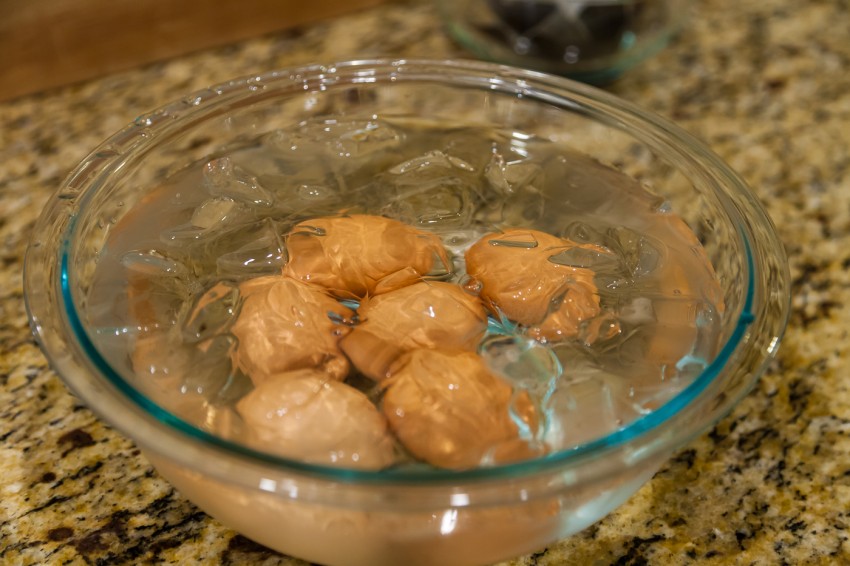
- Gently peel the eggs. This can be quite tricky. The yolks are not solidified and are super soft inside, so be extra gentle when cracking and peeling the shell. I like to crack the shell from one pointy end and slowly work my way to the other end.
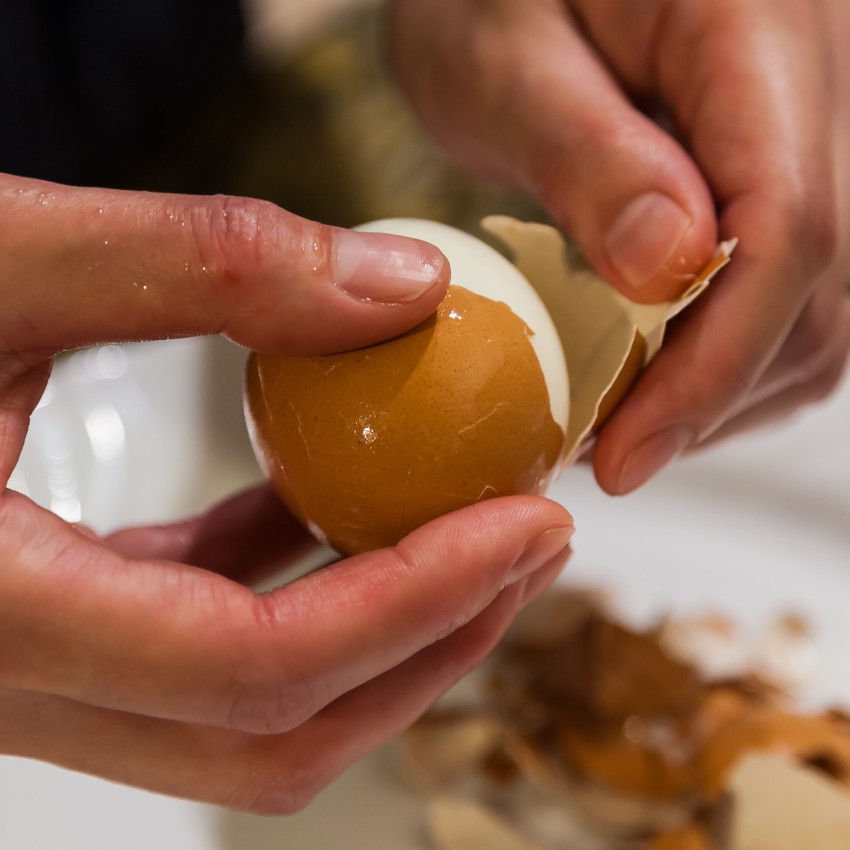
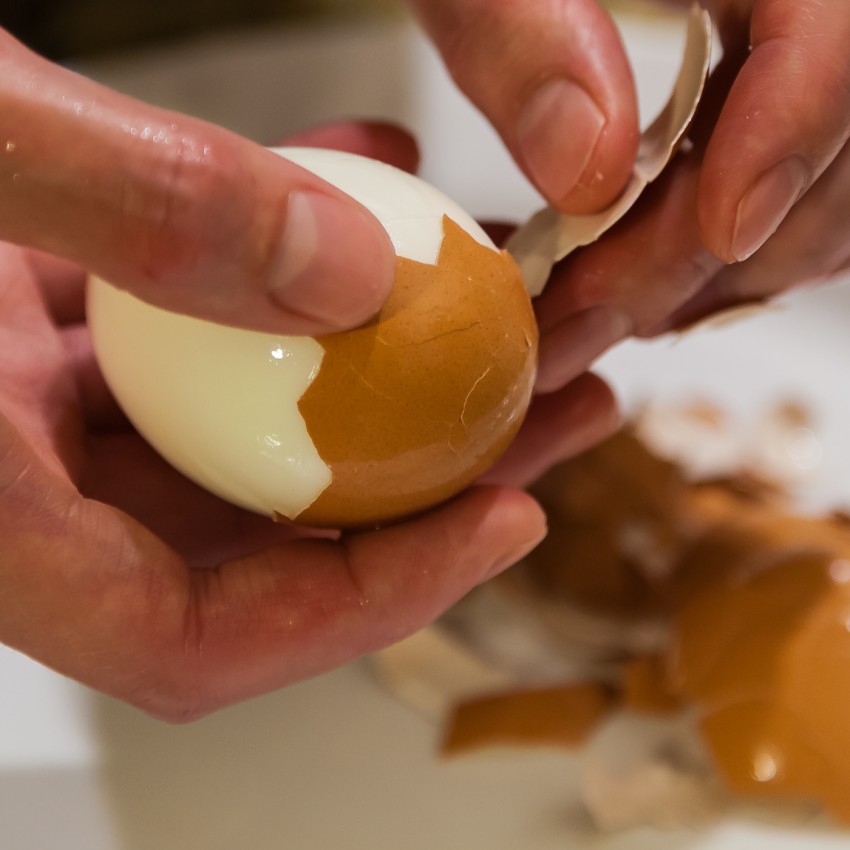
- Put the peeled eggs in the marinade sauce filled Ziploc bag and seal the bag. Make sure to let out any air bubbles. Put the egg bag in a small glass container to ensure the eggs are surrounded by the marinade.
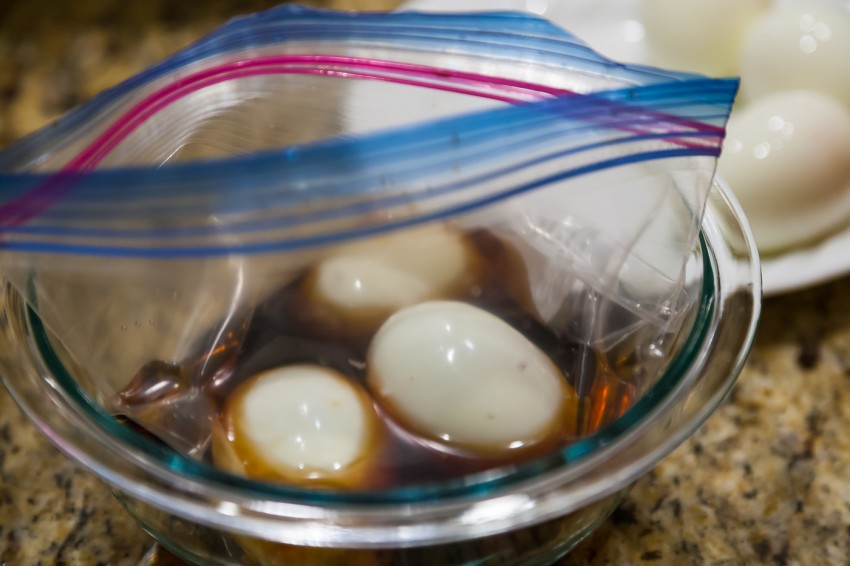
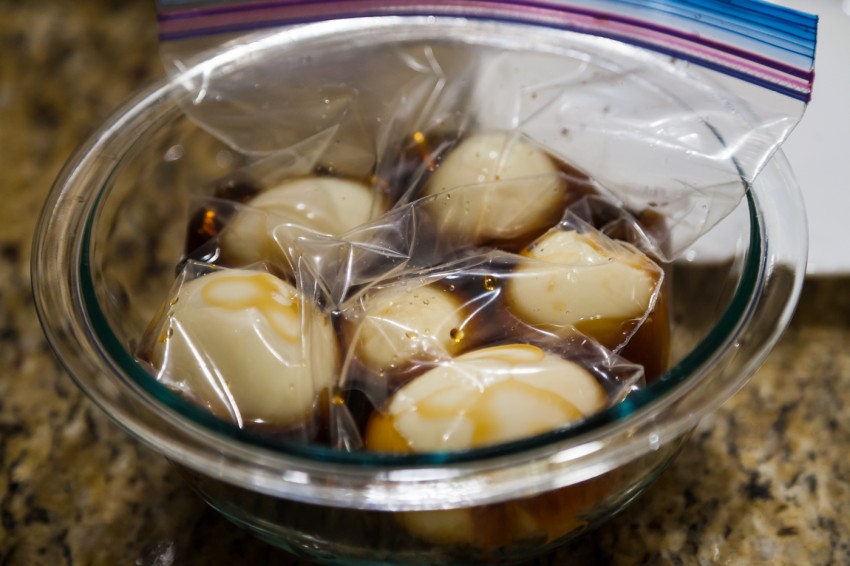
- Let the eggs marinate for at least 6 hours or overnight for best results. The eggs will stay fresh for up to 4 days. Discard the marinade afterwards. The longer the eggs stay in the marinade, the saltier they will taste.
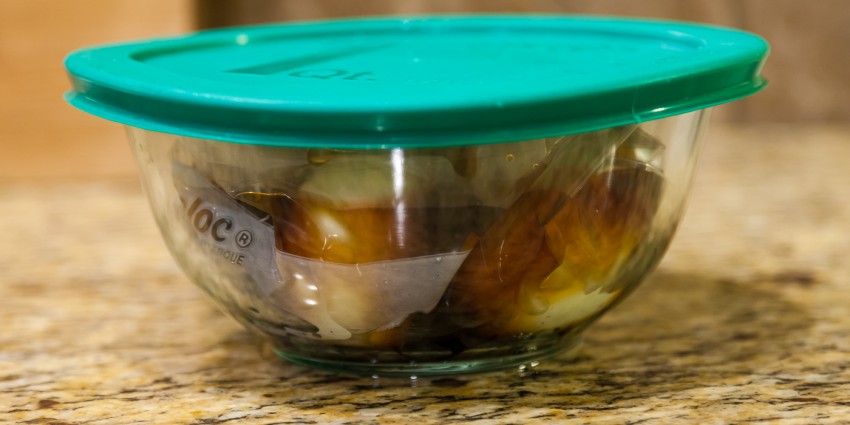

Bon Appétit
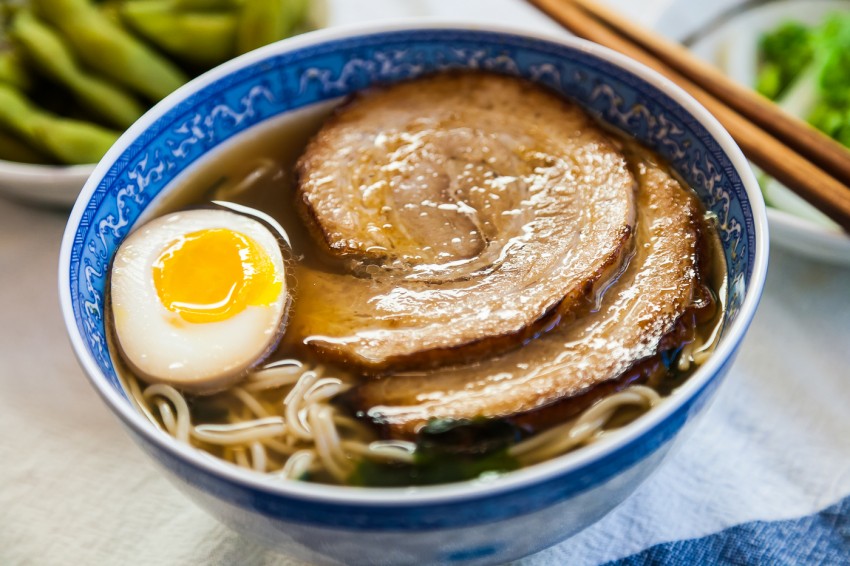
Notes:
- Mirin is a sweet rice cooking wine that is essential in Japanese cuisine. If you don’t have mirin handy, substitute 3 tablespoons of mirin with 1 tablespoon of saki, 2 tablespoons of white sugar, and 2 tablespoons of water. Make sure the sugar is dissolved first with saki and water before adding the mixture to the marinade.
- Adding salt is said to make the peeling easier.
- I use the 7 and half minute timer since it is a bit crowded for 6 eggs in a medium sauce pan. If cooking 4 or less eggs, set the timer to 7 minutes.
- If you prefer more fully-cooked eggs, simmer for 8 minutes instead to achieve the below results.
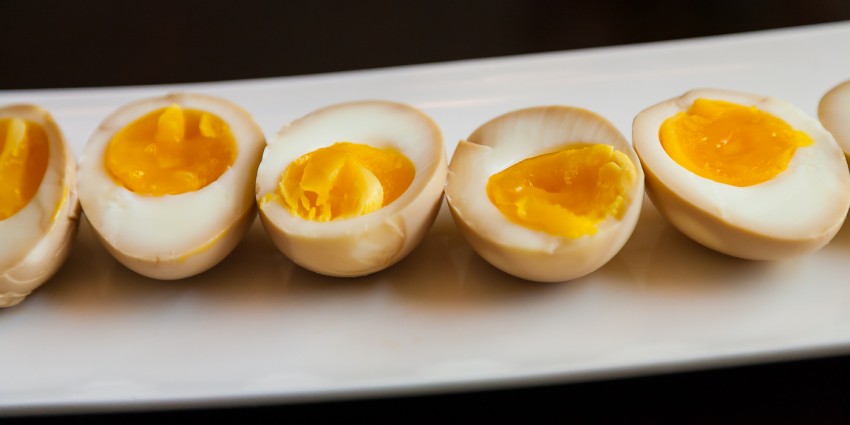
As an Amazon Associate I earn from qualifying purchases.


